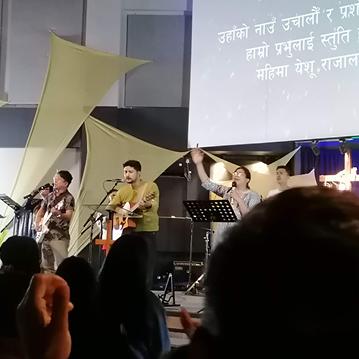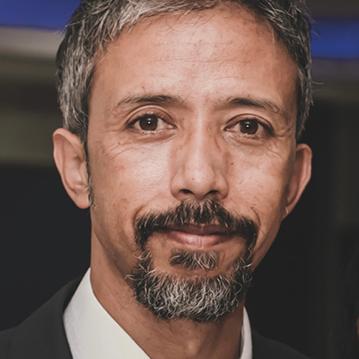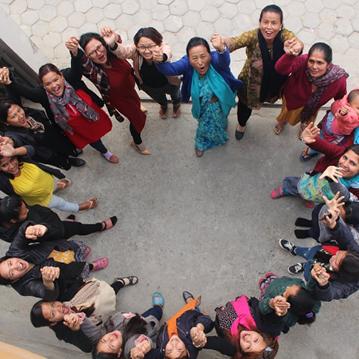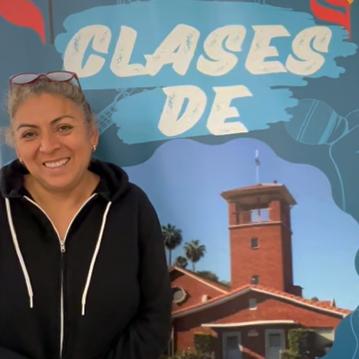C.J. Kingdom-Grier (pastor of worship arts at Maple Avenue Ministries in Holland, Michigan) and Emily Brink (senior research fellow with Calvin Institute of Christian Worship) presented at worship symposia in Bangladesh and Nepal. Kingdom-Grier shares a highlight.
What aspect of worship or Christian life really impressed you in Bangladesh and Nepal?
What impressed me significantly had to do with their corporate prayer, the prayers of the people, intercessory prayer, whatever you like to call it. They asked somebody to lead a prayer. That person was up at the microphone and began praying the prayers of the people. But what happened is that immediately the congregation erupted into prayers of all kinds.

Were they speaking in tongues?
I have dabbled in Pentecostal churches and so I am familiar with the practice of speaking in tongues. I don’t speak Bangla, nor do I speak Nepalese. However, I could distinguish those two languages along with some English and French. In addition, I could also distinguish the indistinguishable babble of tongues speaking. It included all of the people and no one was concerned or worried what the other was saying to God. They were lifting up and encouraging all the prayers to go up to God.
It was one of the most spectacular and beautiful things that I have witnessed in a church setting. In some traditions, it’s customary for other people to encourage other people when they’re praying with “yes, Lord,” “amen,” “thank you, Jesus.” But this was different. The only way I can describe it was a concert of prayer, because people were in harmony and there were no spectators.
Can you say more about prayer and spectators?
Usually prayer is a spectator thing. We listen to the person praying on our behalf. And there’s nothing wrong with that. That’s a particular cultural way of prayer. But, Joan, this prayer was so profound and so moving, and so provocative. It was like yes! Because it offered real liturgy, the work of the people. It wasn’t just listening or encouragement. It was “we’re going to participate with the person and offer up the prayers of all the people to God, simultaneously.”
It broke down walls of class and education and literacy and eloquence—all these things that can produce fear or intimidation when we have the single pray-er. It means all can pray. That was the most profound thing that I came away with—and I came away with a lot of stuff!
Were these prayers within church services other than the conferences or in worship services within the symposia?
Yes and yes. The first time it happened in my hearing was in Bangladesh, in the conference. I don’t know what the man said, because he was speaking in Bangla. But I imagine he invited the people to pray with him, because there were other times, many times, when we had the single-voice prayer, like an opening prayer, closing prayer, before meals, or prayer on behalf of the people. It happened again in the Saturday morning (Sabbath) worship in regular church, and it happened again in two of the workshops, one a musical workshop. They invited people to pray and everybody prayed. And another time, about three-quarters of the way through a man’s prayer, he said, “Let’s pray.”
Did you ever feel comfortable joining your own voice in there?
Absolutely! The first time it caught me off guard so I was like “What’s going on?” And then I became a scholar. I was trying to analyze, to listen and learn, so I was unable to participate in the way they had invited me. The second time was still exploratory, as in “I want to make sure what I heard is what I heard.” And after that it was comfortable to join in. It did take me by surprise when I heard it again in Nepal, after hearing it in Bangladesh, but I was able to enter in.




